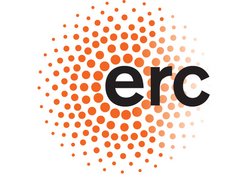Max Planck Society receives 10 ERC Starting Grants
European Research Council awards a total of 429 million euros in funds
The European Research Council has awarded 291 Starting Grants to early-career researchers. The funding is worth 429 million euros in total. In the second call awarded under the 'excellent science' pillar of Horizon 2020, the EU's research and innovation programme, the proposals of three female and seven male researchers from Max Planck Institutes were selected for funding.

The Starting Grants are awarded by the European Research Council (ERC) on an annual basis. Applications are open to researchers with two to seven years of experience since completion of their PhD, provided they conduct their project at a research organisation located in one of the EU member states. The grants are valued at up to 1.5 million euros each. In this call, the Max Planck Society, with 10 grantees, scooped up the most winning proposals in Germany, followed by the Ludwig-Maximilian-University Munich (five grants), and institutions of the Helmholtz Association (10 grants.) On a Europe-wide level, only the French research organization Centre national de la recherche scientifique (CNRS) proved to be even more successful, obtaining 12 grants.
This year, of the 2920 submitted proposals, the majority (1269) came from the domain of physical sciences and engineering. 940 proposals came from the discipline of life sciences, 711 from the social science and humanities. About ten percent of proposals were selected for funding; the ERC sent a total of 291 positive replies to scientists from 38 countries. 28 percent of successful applications were submitted by women, slightly less than last year (33 percent). Most grants were awarded to individuals who work at research institutions in the United Kingdom (48), followed by Germany (47), the Netherlands (32) and France (29). Overall, the new ERC projects will be hosted in 23 countries across Europe.
64 Max Planck researchers submitted proposals. The 10 successful winners correspond to an internal success rate of about 16 percent. The following researchers have reason to celebrate:
- Catherine Crockford and Amanda Henry (MPI for Evolutionary Anthropology),
- Alexander Stein (MPI for Biophysical Chemistry),
- Anke Henning (MPI for Biological Cybernetics),
- John Travers (MPI for the Science of Light), Jens Bardarson (MPI for the Physics of Complex Systems),
- Fabian Schmidt (MPI for Astrophysics),
- Yaowen Wu and Tom Grossmann (MPI for Molecular Physiology) and
- Christian Groß (MPI for Quantum Optics).
It is not only the grant recipients that profit from the EU programme. The grants will also enable the 291 selected project leaders to recruit postdocs and PhDs to set up their own research teams. This is one more way in which the ERC is fostering the next generation of top researchers in Europe.












